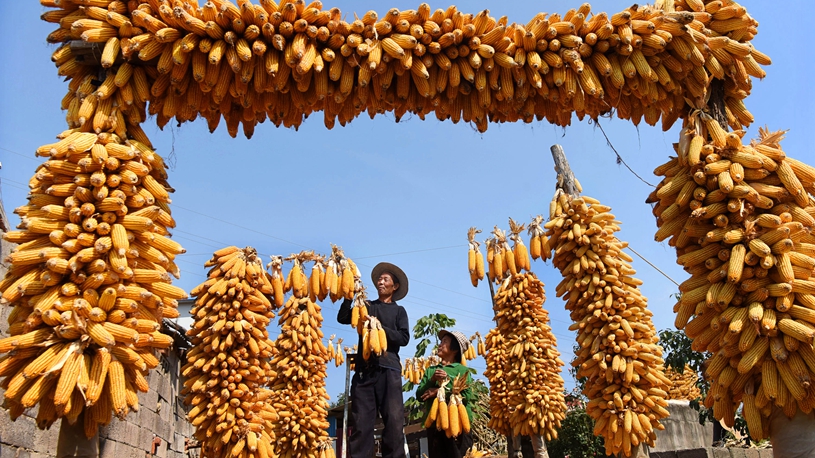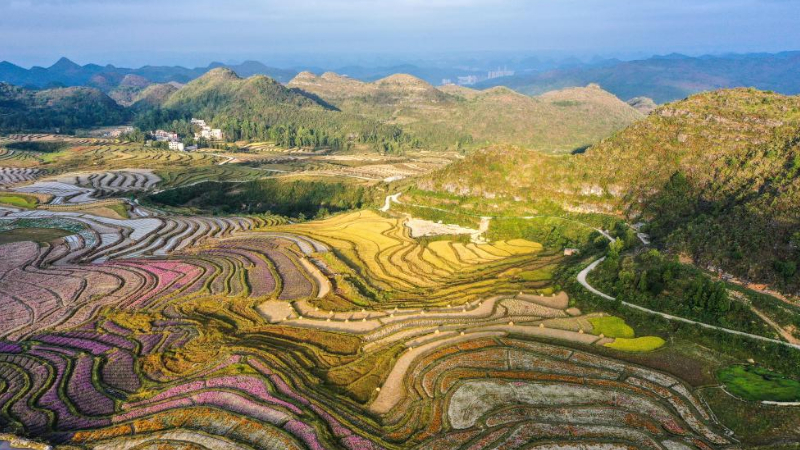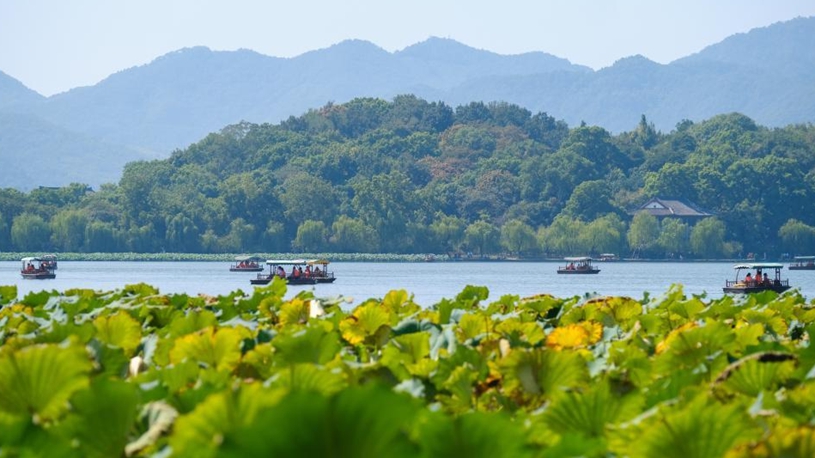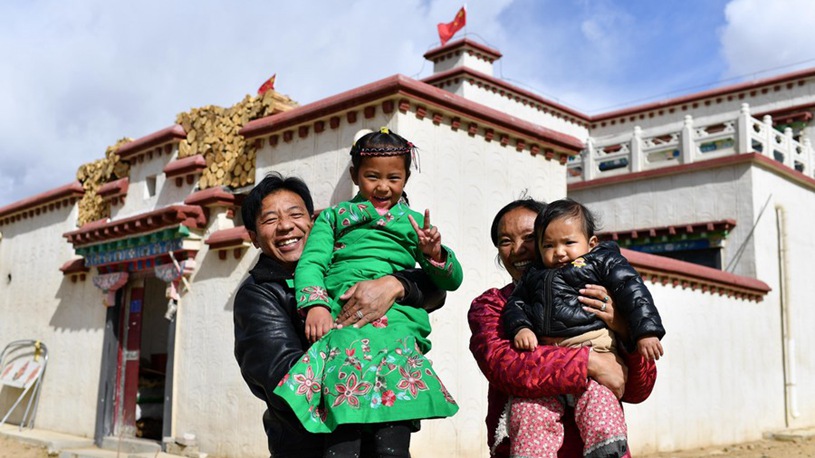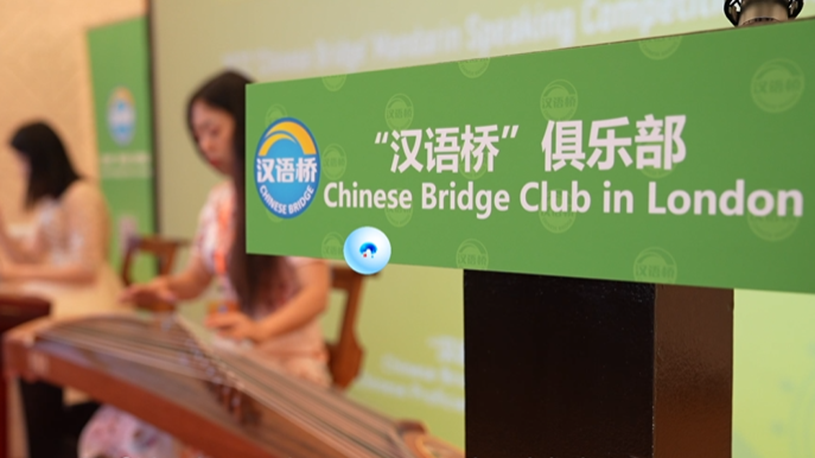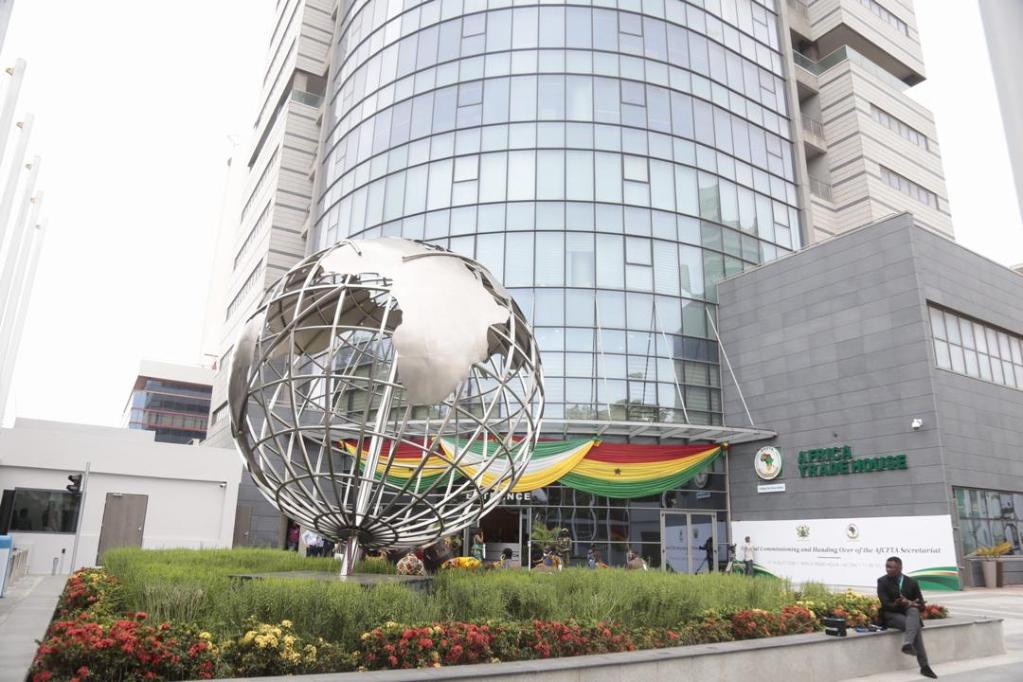
The file photo shows a man sitting outside the office building of the African Continental Free Trade Area (AfCFTA) Secretariat in Accra, capital of Ghana, Aug. 17, 2020. (Ghana Presidency/Handout via Xinhua)
The African Continental Free Trade Area (AfCFTA) secretariat based in Accra, the capital of Ghana, has launched a guided trade initiative for seven member countries.
ACCRA, Oct. 9 (Xinhua) -- The African Continental Free Trade Area (AfCFTA) secretariat based in Accra, the capital of Ghana, late Friday launched a guided trade initiative for seven member countries.
These seven countries which have signaled their readiness to start trading under AfCFTA were Tanzania, Mauritania, Kenya, Egypt, Cameroon, Rwanda, and Ghana.
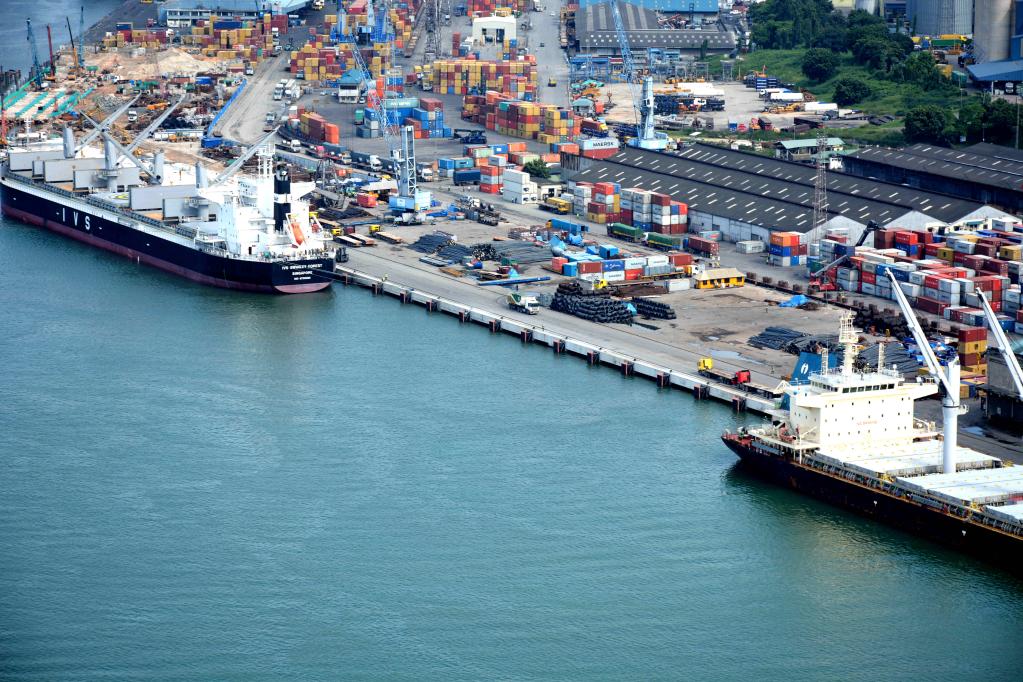
The file photo taken on April 9, 2020, shows the Dar es Salaam Port undergoing upgrading of port berths 1 to 7 in Dar es Salaam, Tanzania. (Xinhua)
Secretary-General of the AfCFTA Wamkele Mene said at least 96 different products from the seven countries could be freely traded under the rules of AfCFTA. Products approved to trade under AfCFTA include horticultural products, pharmaceuticals, rubber, aluminum kitchenware, sugar, steel, and wooden products. These products originating from Africa will enjoy duty-free and quota-free trading among the partnering countries.
"This is the moment the founding mothers and fathers of the Organization of African Unity have longed (for). We have finally honored and made reality the vision of those who liberated our continent," said Mene. "We are connecting East Africa to West Africa, North Africa to Southern Africa. Trade will be the driver of inclusivity, creating opportunities for young Africans. So we have taken the first journey today, and I hope in 15 years, we will have succeeded in lifting millions and millions of Africans out of poverty."
Ghanaian Minister for Trade and Industry Alan Kyerematen observed that the launching of guided trade among seven countries was symbolic in many ways.
"It symbolizes that AfCFTA is not just on paper but a reality. And we are moving from talk and negotiations to action. It also symbolizes that governments in Africa who have been involved in the negotiations are now giving way to the private sector to make it a reality," Kyerematen stated.

